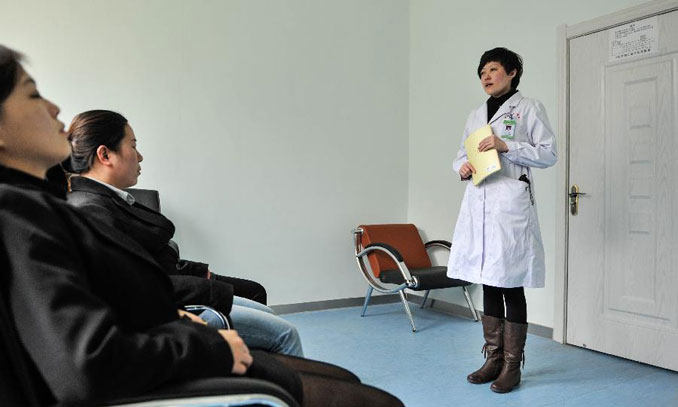New health law to stop detention of mentally ill

China on Wednesday enacted its first mental health law that aims to stop mental hospitals from admitting patients against their will, a practice that previously triggered public outrage amid accusations of forced detentions.
The law, which was passed by legislators in October last year, requires Chinese psychiatric facilities to gain consent from mentally ill patients before taking them in for treatment.
Mentally ill people, excluding those with conditions severe enough to warrant guardianship or who have the potential to harm themselves or others, should receive treatment on a voluntary basis, the law stipulates. It also requires institutions to respect the patients' right to demand discharges.
"The law is the first in China that defines the concept, the standard and the procedure of 'involuntary medical treatment' in an effort to prevent healthy and innocent people from being wrongly diagnosed as 'insane' and placed against their will in a mental hospital," Zhou Zijun, a professor with Peking University's School of Public Health, told the Global Times.
The law has attracted a lot of attention since its draft was submitted for discussion last year. Although there are no official records on the number of people wrongly institutionalized, Xinhua has reported that such cases have increased over the past few years.
Zhou Deming, whose mother became paralyzed after receiving medical treatment in a hospital in Shanghai, was forcibly sent to Shanghai Mental Health Center in April 2008 and stayed there for 67 days after petitioning for compensation for his mother, China National Radio reported.
Similarly, Liu Gang, a farmer from Liaoning Province, found himself locked up in a psychiatric hospital in Linyi, Shandong Province in 2008 after he was taken away by police while protesting outside the local government building over a compensation dispute.
"I told the doctor I was not ill but they ignored my request and force-fed me pills," Liu told the China Youth Daily.
Huang Xuetao, a lawyer and leading activist for mental health rights, told the Global Times that Chinese mental hospitals go unsupervised.
"People with mild symptoms or people who were wrongly diagnosed could be admitted easily," said Huang, "The new law is designed to change that."
According to the law, the decision whether to admit a patient in a mental hospital should be based on a diagnosis made by licensed psychiatrists rather than law enforcement departments. The diagnosis must be verified by two independent professionals should the family of the patient demand a re-evaluation.
Institutions and individuals must protect the privacy of the mentally ill by preventing leaks of personal information, such as their names, addresses and employment status.
The new mental health law will affect some 16 million people in China, China National Radio reported.
But some feel it does not go far enough. "This newly released law is only a general guideline and does not answer detailed questions such as how to determine the consent of a potentially mentally ill person," said Zhang Xinkai, a senior psychiatrist from the Shanghai Mental Health Center.
Zhang hailed the law as a turning point in the development of China's psychiatric treatment but warned the regulation could serve as a double-edged sword and obstruct treatment of severely ill patients if carried out inappropriately.
Xinhua contributed to the story.